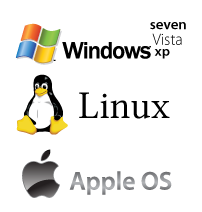The best camera is always the one you have with you, and lately that means your phone. These add-on lenses will up your mobile photo game.
The Basics
Why do I need an aftermarket lens for my iPhone?
With a five-element f2.4 lens grabbing light for its CMOS sensor, the iPhone 4S is a true 8-megapixel camera that rivals many point-and-shoots. One thing it's missing, though, is an optical zoom, which would require a telescoping lens. The iPhone's 5X digital zoom can get you in a bit tighter — walking closer is still the best solution — but it can't go any wider.
What's the difference between digital and optical zoom?Digital zooms crop the middle section of what the sensor sees and then enlarge it to fill the frame; image quality degrades noticeably. Optical zooms use telescopic elements to magnify the image before it reaches the sensor. Results depend on the quality of the glass, but optical will always trump digital.
How do these lenses attach?The lenses in our review use cases, clips, and threaded mounts to fit over the built-in iPhone lens. The low tech approaches may have some Apple engineers cringing, but even the worst lens here handles photographic situations that the iPhone can't on its own. How that lens attaches is probably the most important factor to consider.
Buying Advice
Wide-angle lenses are a smart addition. They're small and portable and make it possible to shoot in confined spaces like cars and restaurant booths. We're less excited by the telephoto options. Those heavy lenses generally require a tripod or some other means of stabilization. Besides, holding an iPhone up to a good pair of binoculars works just as well.
Authors:

















